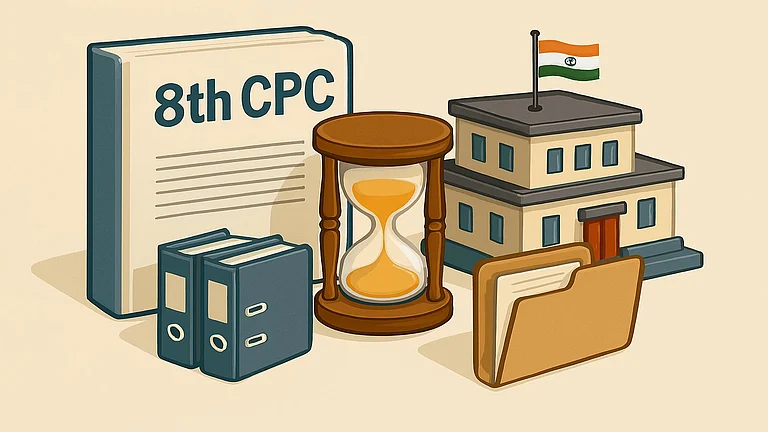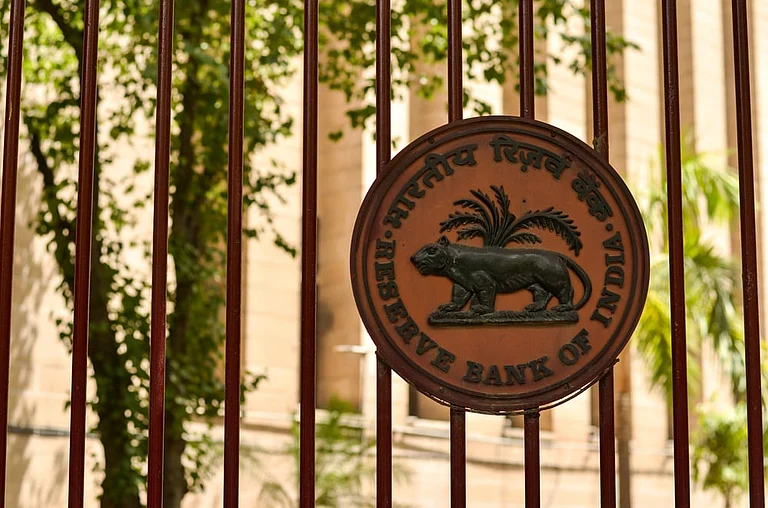
Summary of this article
· Supreme Court ruled pension reduction requires Board consultation
· Case involved ex-bank manager of Central Bank of India
· Pension is affirmed as a constitutional right
· Court overturned High Court's decision
· Bank must consult Board prior to any pension reductions
In a recent case where the pension of an ex-bank manager was reduced by one-third, the Supreme Court gave huge relief to the appellant (ex-bank manager), saying that a pension is a constitutional right. The case involved a former employee of the Central Bank of India who served as a branch manager. He was charged with sanctioning 12 loans without properly verifying KYC or checking the borrowers' income, and he did not conduct any post-sanction inspections. Allegedly, this resulted in a significant financial loss to the Bank.
An enquiry was set against him for his alleged lack of integrity before his superannuation on November 30, 2014. Although he retired, the enquiry continued. When the enquiry report was served to him, he replied to that, but the disciplinary authority imposed a penalty of compulsory retirement, as the enquiry officer recommended under the Central Bank of India Officer Employees' (Discipline and Appeal) Regulations, 1976.
The employee appealed against it to the appellate authority, and while the appeal was pending, the regional manager (of the same rank as the appellant), in August 2015, recommended a two-thirds pension for him (appellant). In December, the appellate Court concurred on a two-third compulsory retirement pension.
Aggrieved, the appellant then approached the High Court, which upheld the appellate Court's decision. Then, the appellant approached the Supreme Court.
Arguments
The appellant's counsel argued that "the clauses (under regulation 33 (1) and (2)) are mutually exclusive and operate in different circumstances which do not overlap with each other. As per clause (1), an authority higher than the authority competent to impose a compulsory retirement penalty may grant a pension at a rate not less than two-thirds, whereas clause (2) permits the competent authority awarding compulsory retirement to award less than a full pension in exercise of its original, appellate or reviewing powers. Only in the latter case, consultation with the Board of Directors is necessary."
The Bank's counsel said that prior consultation with the Board was not necessary because the pension was reduced per regulation 33(1) by the Field General Manager, who is superior to the disciplinary authority.
The Court's Observation
After hearing the arguments, the Court observed, "There is no cavil that pension is not a discretion of the employer but a valuable right to property and can be denied only through authority of law. When an authority is vested with the discretion to grant pension less than full pension admissible under the Pension Regulations, all procedural safeguards in favour of the employee, including prior consultation must be strictly followed."
It held that the High Court failed to follow the regulation in its proper perspective.
"A combined reading of the clauses in regulation 33 clearly indicates that the pension payable to an employee who has been compulsorily retired as a penalty shall not be less than two-thirds of his full pension or Rs. 375 per mensem, whichever is higher. The word 'may' occurring in clause (1) does not give discretion to the superior authority to award a pension less than two-thirds of the full pension. High Court misinterpreted the word 'may' in the clause to hold that the grant of pension is discretionary", said the Court.
It held, "A plain reading of regulation 33 would show that the award of a pension less than a full pension is to be done with prior consultation of the Board of Directors. Such prior consultation with the highest authority of the Bank, i.e., Board of Directors, must be understood as a valuable mandatory safeguard before an employee's constitutional right to pension is curtailed. In these circumstances, a post facto approval cannot be a substitute for prior consultation with the Board before the decision is made."
Judgement
The Court allowed the appeal and set aside the High Court's order. It also directed the Bank to give a hearing opportunity to the appellant and have a prior consultation with the Board of Directors of the Bank within two months from the date of judgment. If they fail to do so, the appellant will become entitled to the full pension from the date of superannuation, the Court ordered.


















